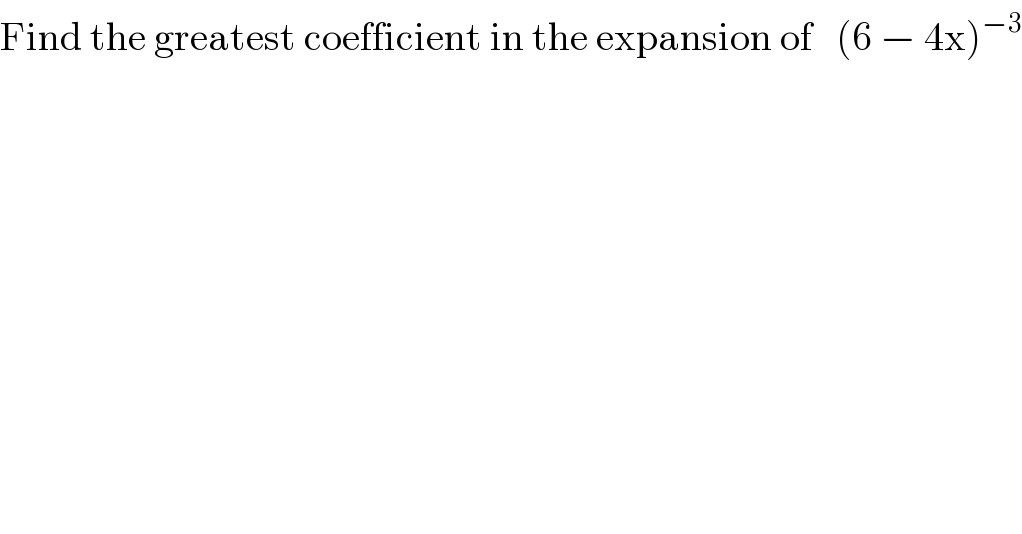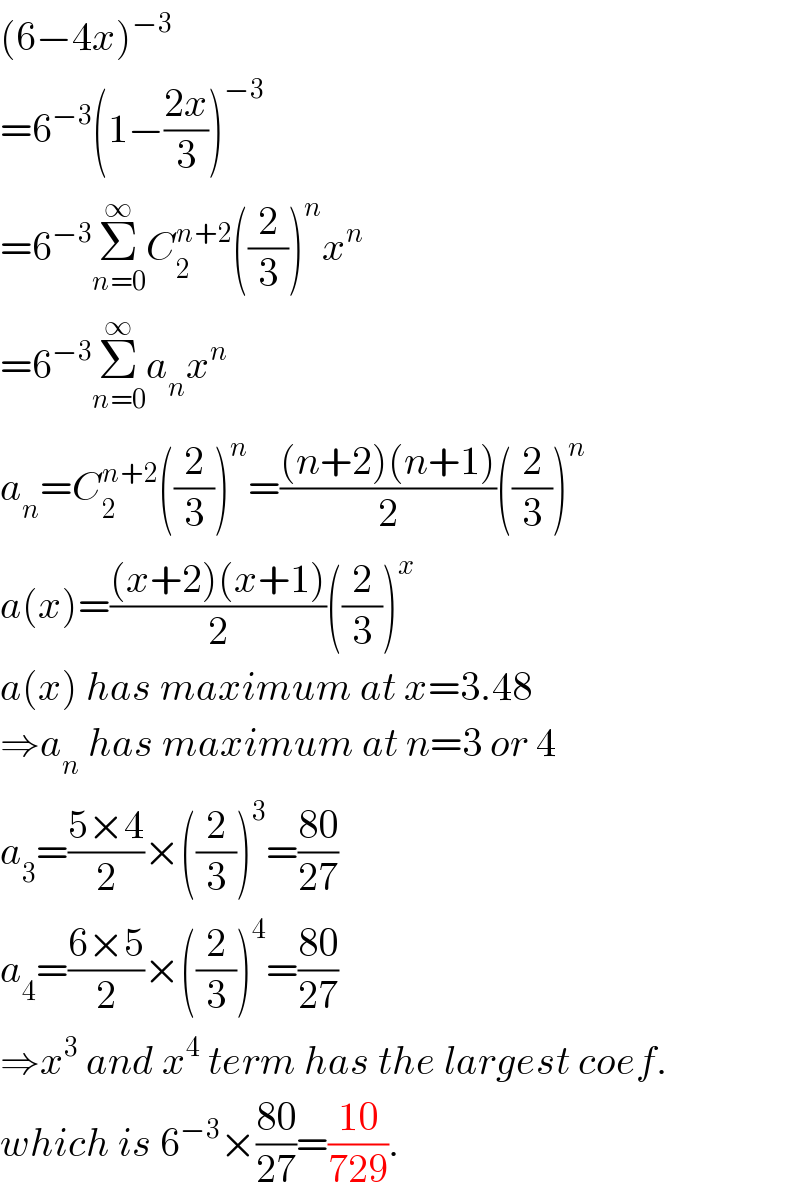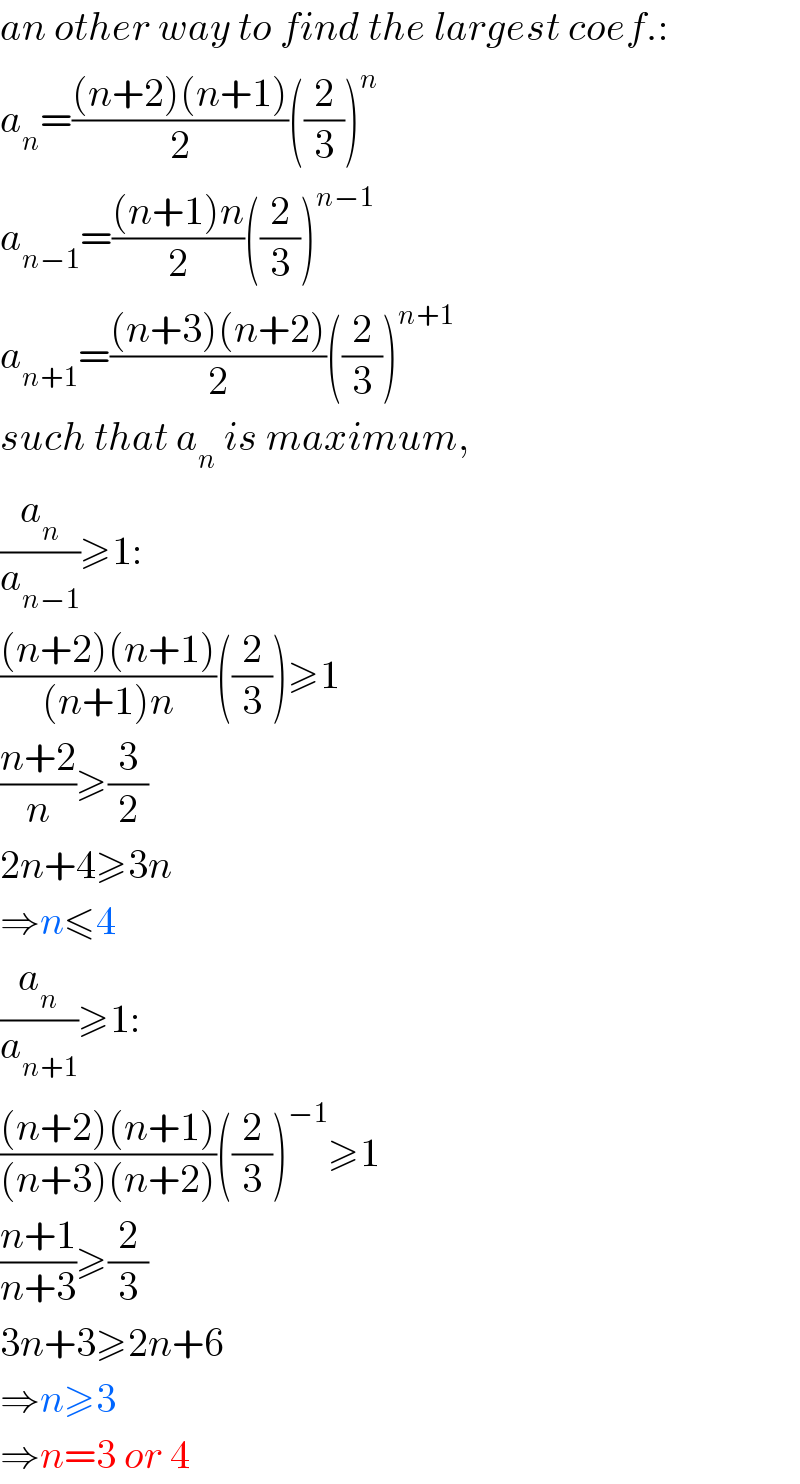
Question and Answers Forum
Question Number 62945 by Tawa1 last updated on 27/Jun/19

Answered by mr W last updated on 27/Jun/19

Commented by Tawa1 last updated on 27/Jun/19

Commented by Tawa1 last updated on 29/Jun/19

Commented by mr W last updated on 29/Jun/19
![look at a(x)=(((x+2)(x+1))/2)((2/3))^x (x+2)(x+1) is increasing with x, ((2/3))^x is decreasing with x, so an(x) has a maximum at some point, at this point ((da(x))/dx)=0. ((da(x))/dx)=(((2x+3))/2)((2/3))^x +(((x^2 +3x+1))/2)((2/3))^x ln ((2/3))=0 (2x+3)+(x^2 +3x+1)ln ((2/3))=0 ln ((2/3))x^2 +[3ln ((2/3))−2]x+[ln ((2/3))−3]=0 ⇒x=((−3ln ((2/3))+2+(√([3ln ((2/3))−2]^2 −4 ln ((2/3)) [ln ((2/3))−3])))/(2ln ((2/3))))=3.48 i.e. a(x) has maximum at x=3.48 a_n will have maximum when n is so close to 3.48 as possible, that is n=3 or n=4.](Q63119.png)
Commented by Tawa1 last updated on 29/Jun/19

Commented by mr W last updated on 13/Jul/19

